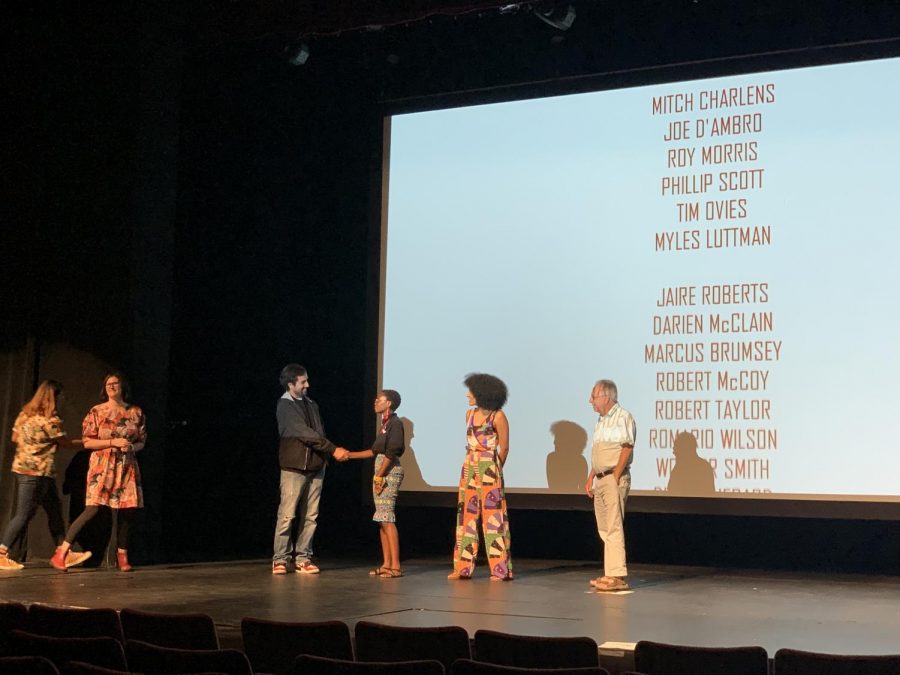On Sept. 10 and 11, the Africa World Documentary Film Festival came to San Diego State’s Don Powell Theatre to share African culture and the art of documentary filmmaking with students.
The goal of the traveling festival is to spread the knowledge, life and culture of people from African descent around the globe. This year, the festival traveled to Nigeria, Ghana, Thailand, South Africa, Trinidad and the U.S.
The festival receives submissions annual, totaling over 300 documentary films from over 35 countries.
The documentary selections for the festival’s 2019 tour contained powerful films from around the world. These films contained stories about Ghana’s contemporary dance, suppression of the black female voice, a journey of pain and glory for a men’s basketball team, black hair, the emergence of female talking drummers in Nigeria, migration, human rights for women in Kenya, activism and The Tivoli Incursion.
The Department of Africana Studies along with the School of Theatre, Television and Film sponsored the festival. Dr. ‘Niyi Coker, Jr., the director of the School of Theatre, Television and Film, is the organizer of this film festival.
Dr. ‘Niyi Coker, Jr. said he is very proud of the festival’s great successes as it will now be entering its 15th season.
“The cosmology and world view of Africa and Africans across the globe remains an enigma,” Coker said. “This is difficult to digest given the knowledge that the African heritage is on virtually every continent. The African culture has influenced every stratification of contemporary lives from its music, language, diet and aesthetics.”
David Huft, a junior theatre design and technology major, attended the festival on Sept. 10.
“The festival was a fun experience,” said Huft. “The featured films told creative and relevant stories that stuck with me for days after the event.”
Director Mark Freeman presented his documentary “Atena/Nets” on the night of Sept. 10. His film depicted a contemporary dance that was specific to its traditional fishing community in Jamestown, a community in Accra, Ghana. The dancers in his film used colorful nets during their dance.
“Once we saw that the spot overlooked the fishing pier, if you look in the distance along the pier there’s all these blue nets,” said Freeman. “The nets can be used to symbolize and encapsulate so many different feelings.”
“Mis(s) Interpreted,” the second of the three films shown in the Don Powell Theatre on Sept. 10, is about the suppression of the black female voice. The director of the film, Ayesha Kosaka, spoke on a panel about the meaning of her story.
“We reached out to the entire community for this project,” Kosaka said. “This is an effect that a lot of black women face, and we felt that it was important to see it on all levels whether it was a professional level, between friends or our peers and community. There are a lot of battles that we have to go through.”
The final show of the tour was located in the SDSU School of Art Downtown Gallery on Sept. 12.
For more information about the Africa World Documentary Film Festival, visit the festival’s website at africaworldfilmfestival.com.
Alexandra Gex is a junior studying journalism.







